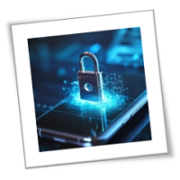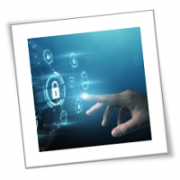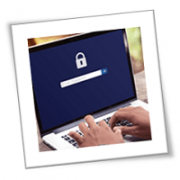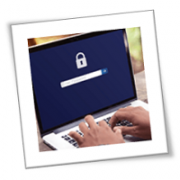A password is more than just an assortment of characters you’re required to enter in order to access your accounts. It is the first line of defense against potential threats and attacks. A weak password makes it easier for hackers or cybercriminals to gain access to your personal information, such as financial details or sensitive data. But there are many people who are completely misguided about what a strong password actually is.
The importance of secure passwords for your business
While many personal accounts are password-protected, securing your business accounts is equally critical. This applies not just to you but to your entire company. Every employee should use strong passwords to safeguard sensitive business data. Imagine the potential harm a cybercriminal could cause if they gained access to your data and systems. It could tarnish your business’s reputation and jeopardize both your employees’ and customers’ private information.
What makes a password strong? (Hint: It’s not about complexity)
Contrary to popular belief, the strength of a password is not solely determined by its complexity. While including a combination or letters, numbers, and symbols can enhance password security, it’s not as effective as using a longer sequence.
A long password is far stronger because it increases the number of possible combinations that an attacker needs to guess. This means that even if your password contains common words or phrases, it will still be significantly more difficult to breach if it’s longer. In fact, a lengthy passphrase consisting of a series of unrelated words can often be stronger than a shorter password filled with complex characters. For instance, “PurpleBananaSunsetRiver” is not only easier to remember but also more secure than something like “P@ssw0rd1” because of its length and randomness.
Furthermore, longer passwords are more resistant to brute force attacks, which involve using automated programs to guess different password combinations until the correct one is found. The longer the password, the more time and computational power it would take for an attacker to crack it, making it a far less appealing target. So, when creating strong passwords for your business accounts, prioritize length and complexity to bolster your online security effectively.
Educating your team on password security
If you manage a team, it’s crucial to educate them on the significance of strong, lengthy passwords. Ensure your team receives training on cybersecurity practices, including password creation. A single weak password could open the door to a cyberattack, emphasizing the importance of collective diligence.
Simplifying strong password creation
Creating robust and lengthy passwords doesn’t have to be a tedious process. If you struggle to create or remember them, consider using a password manager. This tool can generate long and unique passwords for each account based on your preferences. It will then store them securely so that you only need to remember one master password to access all your accounts.
Passwords are often the easiest to overlook when it comes to online security, but they are also the most critical. If you need further guidance or assistance in enhancing your cybersecurity practices, get in touch with us. Our team of experts is ready to help you navigate the digital world securely.
If you are looking for an expert to help you find the best solutions for your business talk to GCInfotech about a free technology assessment
Published with consideration from TechAdvisory.org SOURCE





